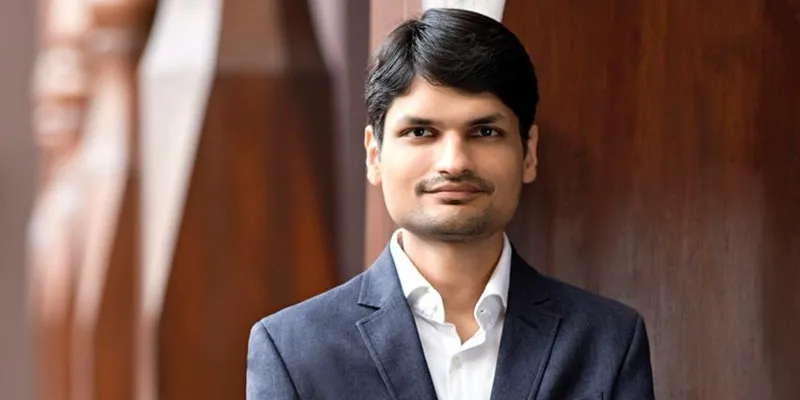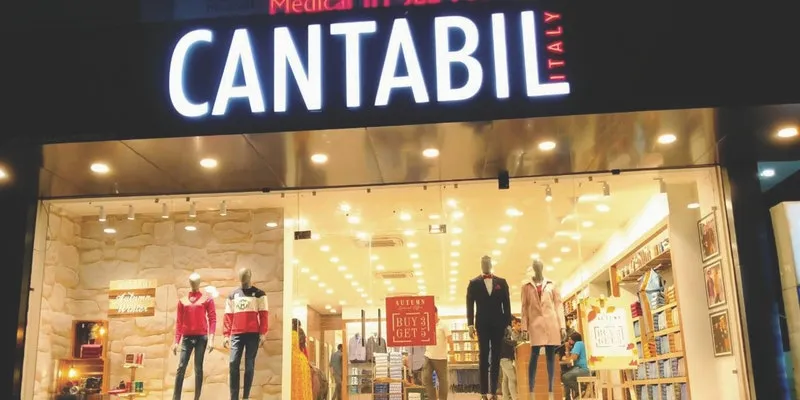This apparel brand once shut its 150 stores, revived to rake Rs 290 Cr revenue
From starting as a trader to founding an Indian apparel brand and raising Rs 105 crore IPO, Vijay Bansal stayed afloat in the competitive market despite the recession and the slowdown. The company now clocks Rs 290 crore turnover by just selling offline. Here’s Cantabil Retail’s story.

Deepak Bansal, Director, Cantabil
After completing his graduation from the Kurukshetra University, Harayana, Vijay Bansal entered his family-owned business of FMCG products around the 1970s. He was brought up in Jind, a small yet the oldest city in Haryana.
Though things were running smoothly, Vijay didn’t want to settle in the same business. He had big visions, so he took a leap of faith and moved to the national capital Delhi, with high hopes to make his name in the industry.
In an interaction with SMBStory, Deepak Bansal, Vijay’s son and a second-generation entrepreneur says,
“Around the 1980s, my father moved to Delhi. The city and culture were completely different for him. And, it was out of his comfort zone that he established Cantabil Retail, which is now one of the leading Indian brands in the apparel industry.”
From a trader to an entrepreneur
After moving to Delhi, Vijay started as a garment accessories trader with a capital of Rs 5 lakh. He used to purchase the accessories from the local markets to sell to manufacturers. He continued in the same sector for about eight to 10 years after which he moved to readymade garment business.
In 2000, Vijay founded Cantabil Retail in Delhi and opened the first store in the heart of West Delhi in the Rajouri Garden market.
Deepak says, “The company was founded as a Pvt Ltd in 1989 when my father was into trading, however, the store came into existence in 2000.”
Initially, Cantabil stores showcased other brand’s products, but gradually it switched to its own manufactured products.
The company has a manufacturing unit spread across a built-up area of 1.50 lakh sq. ft. in Baha, Haryana, that produces around one lakh pieces per month.
Deepak says the current range of products includes men’s casual wear, party wear, and clubwear. It also offers ladies’ casual and ethnic wear, and as of last year, it entered into kids’ casual range which is still growing.
“In our apparel range, we own 30 percent of the range, while 70 percent is outsourced from third party manufacturing units. We source fabric from Indian mills like Vardhaman, Arvind, Nahar, NSL, and Grasim. Some of the fabrics and garment accessories are also sourced from China.”

Cantabil store in Delhi
Between 2000 and 2006, Cantabil expanded its reach in Delhi, opening 40 stores that included high-street and mall stores.
It also reached out to nearby states like Rajasthan in 2006. At present, Cantabil has 290 stores across 16 states in the country. The company now plans to expand the network to 400 outlets by 2020.
Surviving the recession
Cantabil started at a fast pace and was faring well. The company even raised Rs 105 crore through an IPO in 2010. However in 2011, due to the recession, there was a slump in the market.
“I entered the business in 2006, and the expansion was fast-footed. It was alarming to see that, at the point when the brand was gaining momentum and expanding, recession ate it up. There were around 300 stores spread across states, of which we had to shut 150 stores immediately.”
Nonetheless, having to re-work on market and growth strategy, Cantabil bounced back stronger.
The company clocked revenue of Rs 290 crore in the financial year 2018-19, which is the best top-line figure achieved since inception, Deepak claims. The company has more than two million registered customer database, who it reaches out to regularly through SMM, SMS, campaigns, etc.
Challenges and expansion
Speaking about the challenges, Deepak says that new customer acquisition and retaining them in an intensely competitive market is difficult. And to minimise it, the company has designed and further aligned its marketing strategy to achieve sustainable growth.
In recent years, Cantabil started focussing on social media marketing to engage with customers via Instagram and Facebook. It is also in the process of adopting a complete ERP solution and an omnichannel technology, that will help increase its business in both the online and offline space.
At present, Cantabil does not sell online, but is planning to get listed on Flipkart, Amazon, and PayTM soon.

Cantabil's denim collection
Future prospects
For the last few years, Cantabil has been growing at a rate of 30 percent CAGR, and Deepak expects the same to continue for the next four to five years. He says there is a significant increase in awareness about fashion trends among people hailing from smaller towns and cities. Hence, the company sees immense potential in Tier-II and III markets for expansion.
The company believes in sustainable growth and accordingly is eying a target of reaching 400 store counts in 2020. Further, Deepak is also working towards building Cantabil as a Rs 1,000 crore revenue company at a steady pace.
(Edited by Suman Singh)









